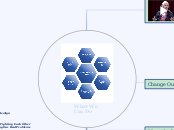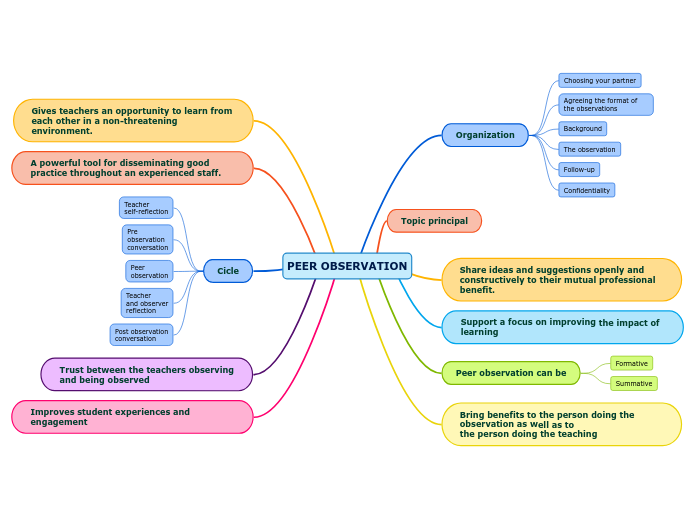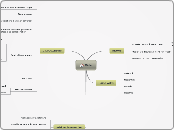Strategic Social
Action
CITIZEN
LED
Citizen Action Cycle
3 Sphere Process Model
SYSTEM
FOCUSED
SOLUTION
CENTERED
Stop Fighting Each Other
Start Solving Our Real Problems
Shape the Systems
that Shape Us
Make All Sectors
Part of the Solution
Divest, Reinvest, Realign
Find Solutions &
Take Them to Scale
Change the Future
What We
Can Do
Main topic
Change the Game
Strategic Skill
Strategic
Systems Analysis
Targeted Change
Informal Analysis
Causal Loop Analysis
Scott Spann
RE-AMP Project
What Is a System?
A system is a
set of elements whose
interconnections
determine their behavior
Beth Sawin
Actions to Take
Collective
Impact
Seven Ways to Make
Radical Systems Change
Kinds of Systems
Change Needed
Emergent
System
Requirements
Millennial Goals
Paris Accord
International
Declaration of
Human Rights
Participative
& Deliberative
Democracy
World Bank Course
on Self-Governance
Alternative
Global
Security
Systems
Beyond War
The Next
System
Project
Emerging
Governance
Structures
Global
Self-
Governance
Glocal Focus
Next System Project
American Promise
Change the Politics
Subtopic
Strategic Skill
Working Across
Differences
Organizing
Tool
Empower
Communities
Anchor Institutions
Evergreen Coops (Cleveland)
Worker Owned Coops
Reclaiming the Commons
Localism Pros & Cons
Start Solving
Our Real Problems
Cleveland
Evergreen Coop
Tiny house
Mondragon,
Italy
Take
Puerto Alegre
Guaranteed Income
4 hr workweek
Survival
Jobs
Stop Fighting
Each Other
Van Jones
Trevor Noah
MacLeans Magazine,
(Manju, Tom, Margaret, Trevor)
Zubizarreta
Austria
Dynamic Facilitation
NVC
NCDD
Wise Democracy
Tom Atlee
CII
Card Deck
David Campt
Tim Bonnemann
Healing the Heart of Our Democracy
(Jim's book)
Beyond the Messy Truth
Unstoppable
Local Focus
Worker-Owned
Cooperatives
Change the Rules
Strategic Skill
7 Sources of
Citizen Power
Mass Action
This is an Uprising
Integrating
Systems Design
Targeting
Pivotal Points
Connecting
Causes
Innovation &
Entrepreneurship
Working With
Large Scale Forces
Changing
Hearts & Minds
Winning
Campaigns
Study Guide for Jim Crow
Jim Crow
Our Declaration
of Independence
Danielle
Steele
Kingian Nonviolence, Hazu Kaga
A Force More Powerful
You Have More
Power than You Think
Liberate Our
Capacities
Citizenship
Schools
Prisons
Curb Corporations
Personhood
"Capitalist" Punishment
Windfall/Investor Taxes
Capital Expenditures
CCL
Reform Elections
Electoral College
Gerrymandering
IRV
Crash the Parties
Local Focus
Democratic
Party; IRV
Move the Money
Strategic Skill
Promoting Solutions
Challenges
to Plan for
While solutions-oriented, appreciative thinking plays the critical lead in successful action, the more critical, skeptical demand for rigor and caution is as essential to success. Risks to be anticipated come in several forms:
- Unacknowledged conflicting needs and interests, misunderstandings, and interpersonal concerns, "feelings" and "histories" can impede essential collaboration. Creating space to work through and "harvest" substantive differences advances the planning. Time, safety and skill in exploring and where possible healing or at least accepting interpersonal differences grows the community that is itself among the critical goals of the work itself as well as allowing collaboration to continue.
- Things may not work as planned--in fact they usually don't. Backup plans may help. Readiness to learn and to adapt makes the unexpected often the very source of new breakthroughs. Such readiness is a matter both of ongoing efforts to stay centered, connected and open.
- "Due deliberation" or "doing the homework" is our best effort, within the time and accessibility to information available, to at least minimize forseeable error.
- The powers aligned against deep systems change are vast and multi-faceted, usually subtle, and sometimes lethal in how they work. We can only study them, try to outguess them in our planning, and strengthen ourselves through centering, mutual support, and practice. Hence the often critical importance of on-going personal growth and training in communication, organizing, non-violence, and strategic action.
Actions
To Take
As Lakey explains in Viking Economics, moving the money away from the oligarchy, in the early 20th century, is what returned control of their countries back to the people in Scandinavia. That is why (or one of the main reasons why) today they are still at the top of all measures of social well-being, prosperity and democratic effectiveness. It is our hope then that the potential realignments of economic power discussed here will allow our nation and indeed the global economy and society to in time achieve a similar shift.
That very hope however means that those whose monied interests and power will be affected by these revolutionary changes as they come about are going to use every weapon in their considerable arsenal to defeat these developments. For example, public banks are not illegal at the federal level but should they start up in various states the banking and finance lobbies are certain to push for rapid passage of statutes that do directly or indirectly render them illegal or so attentuated as to lose most of the benefits.
Coupling efforts to create public banks in California and elsewhere with the election to federal offices of those committed to fostering and protecting the concept must be made a critical component in the overall campaign to "move our money".
Solutions
Now Emerging
"Triple Bottom Line"
Realignment of a Field
Cradle to Cradle
Manufacturing
William
McDonough
The Netherlands
Experience
True Public-Private
Collaboration
mariana mazzucato
Socially Responsible
Investment
Conscious
Capitalism
Social
Entreprenuership
B Companies
Millenials
Reclaiming
"The Commons"
Triple Bottom Line and Emerging Realignment of Norms and Priorities
Micro-Capitalism
Elinor Ostrom
Viking Economics
Owning Our Future
Money Talks
Pentagon Audit
What Is Money?
Public Banking
Divestment
Local Focus
Public Banking
Change Our Ways
Second Myth
- Solutions Map
(Def Terms/Explain Map)
[Kinds of Solutions]
Proven: L2L
Promising: 3P
Established: Yacouba
Strategic Social Action
Solutions-Centered
Social Design
Design Specifications
Systems Requirements
Dynamic Facilitation
Reframing
Appreciative Inquiry
Reverse Engineering
Barn Building
Systems Focused
Citizen-Led
Social Design
How to Get It
System Impact
Innovation
(Intervention/Targeted Action
Strategic Skill
Collaborative
Problem-Solving
Strategic Social Action
Solution Centered
What We Need
Local Action
Smart Solutions
Local Focus
Housing
Systems Focus
Shelter
Change the Story
Challenges
to Anticipate
While solutions-oriented, appreciative thinking plays the critical lead in successful action, the more critical, skeptical demand for rigor and caution is as essential to success. Risks to be anticipated come in several forms:
- Unacknowledged conflicting needs and interests, misunderstandings, and interpersonal concerns, "feelings" and "histories" can impede essential collaboration. Creating space to work through and "harvest" substantive differences advances the planning. Time, safety and skill in exploring and where possible healing or at least accepting interpersonal differences grows the community that is itself among the critical goals of the work itself as well as allowing collaboration to continue.
- Things may not work as planned--in fact they usually don't. Backup plans may help. Readiness to learn and to adapt makes the unexpected often the very source of new breakthroughs. Such readiness is a matter both of ongoing efforts to stay centered, connected and open.
- "Due deliberation" or "doing the homework" is our best effort, within the time and accessibility to information available, to at least minimize forseeable error.
- The powers aligned against deep systems change are vast and multi-faceted, usually subtle, and sometimes lethal in how they work. We can only study them, try to outguess them in our planning, and strengthen ourselves through centering, mutual support, and practice. Hence the often critical importance of on-going personal growth and training in communication, organizing, non-violence, and strategic action.
What to change
Response5 Empowering Truths
1.We can restore the earth, at least enough to still save the planet. And we can meet human needs not just along with this effort, but as a core part of it.
2.Many of our problems already have proven solutions and most others promising innovations. The challenge is what it can take to bring these solutions to scale—available to all who need them—and how we can bring that about, using our organized power as citizens.
3.There is enough money to do that job. What has to happen is to move that money where it’s needed. Divestment, public banking, socially responsible investment, B-Corporations, and many others now emerging are potent ways citizen action can make that happen.
4. We do have the power we need, when we come to solidarity--across divisions and disciplines, issues and sectors, regions and class--and then focus on the right targets using the right strategies for the rules and the systems we must change.
5. We’re actually the answer. Yes—all part of the problem, but thus also all part of the solution. The emerging powers of citizens explored in this series are arriving just at this time of massive breakdowns. What we have to do is far from easy. But it is also far from proven impossible.
Divided No More
5. We’re actually the answer. Yes—all part of the problem, but thus also all part of the solution. The emerging powers of citizens explored in this series are arriving just at this time of massive breakdowns. What we have to do is far from easy. But it is not yet proven impossible. We are thus obligated to do all in our power to yet achieve a livable future.
You Have More
Power than You Think
by Eric Liu
4. We do have the power we need, when we come to solidarity--across divisions and disciplines, issues and sectors, regions and class--and then focus on the right targets using the right strategies for the rules and the systems we must change.
Drawdown by
Paul Hawken
1.We can restore the earth, at least enough to still save the planet. And we can meet the core human needs of all humans, not just along with this effort, but as an inherent part of it
Challenge
5 Disabling Beliefs
- Meeting human needs destroys the Earth. The planet's better off without us.
- Our problems are overwhelming in their complexity--inherently insoluble.
- Even where there are solutions we don't have the money to bring them to scale.
- Even if we find the money, we don't have the power to spend it where it's needed.
- We’re the problem. We are hopelessly divided, and our very nature is just too violent, greedy, indifferent, or foolish to do what’s needed.
5. We’re the problem. We're hopelessly divided and our very nature is just too violent, greedy, indifferent, or foolish to do what’s needed.
4. Even if we find the money, we don’t have the power to put that money where it’s needed.
3. Even where there are promising solutions, we don’t have the money it would take to bring them to scale.
2. Our problems are overwhelming in their complexity—inherently insoluble.
1. Meeting human needs destroys the Earth. The planet’s better off without us.
How to change it
Organizing
Performances
Public Protests & Enactments
Tabling & Petititoning
Speakers & Panels
Letters & Op Eds
Conversations
Schooling
Professional Requirements & Standards
Admission & Graduation Requirements
Required Courses
Realigned Courses & Texts
Online Webinars & MOOC's
Media
Videos & PDF's
Social Media
Professional Realignments
Citizen Journalism









